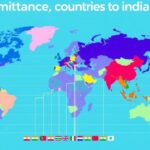Raghuram Rajan Critiques Trump’s Tariff Strategy’s Impact on U.S. and India
Raghuram Rajan critiques Trump’s tariff strategy, labeling it a ‘self-goal’ that may harm the U.S. economy while having a limited effect on India. He suggests India’s exports may be adversely affected but views the situation as an opportunity for India to reduce its tariffs and establish stronger trade ties. Rajan emphasizes the importance of adapting to a protectionist world through strategic partnerships.
Former Reserve Bank of India Governor Raghuram Rajan has commented on the Trump administration’s intent to impose reciprocal tariffs on approximately 60 countries, labeling this approach as a ‘self-goal.’ According to Rajan, in the short term, these tariffs will primarily harm the U.S. economy rather than benefiting it, with a limited impact on India’s exports.
In an interview with the Press Trust of India (PTI), Rajan explained that the direct consequence of increased tariffs on Indian goods would ultimately raise prices for U.S. consumers, resulting in reduced demand and consequently hampering India’s growth. He emphasized that since the U.S. has levied tariffs on multiple countries, the resulting impact on India will be lesser than if the tariffs were solely targeted at India.
Presently serving as a Distinguished Service Professor of Finance at the University of Chicago’s Booth School of Business, Rajan noted that the U.S. aims to lessen imports and enhance domestic production; however, he cautioned that such strategies might take time to come to fruition. He suggested that the tariffs could lead to a ‘disinflationary’ effect in India, as fewer exports to the U.S. might prompt India to retain more goods domestically while competitors like China seek to infiltrate the Indian market.
Furthermore, Rajan identified an opportunity for India to utilize this crisis by lowering its own tariffs, which he asserted would be beneficial regardless of its impact on U.S. tariff negotiations. He underscored the need for India to adapt to an increasingly protectionist world by becoming strategically savvy about trade, mentioning potential partnerships with ASEAN, Japan, Africa, and Europe.
He also highlighted the significance of strengthening economic ties within South Asia through the South Asian Association for Regional Cooperation (SAARC), advocating for overcoming political differences to ensure South Asia is not left behind in the emerging regional trade blocs.
Trump announced reciprocal tariffs beginning April 9, which include a 27 percent surcharge on imports from India as part of a comprehensive tariff structure initiated on April 2. This move, alongside a baseline 10 percent tariff on all nations effective from April 5, raises concerns about igniting a trade war and altering the global economic landscape.
In summary, Raghuram Rajan has provided insights into the potential consequences of the Trump administration’s tariff strategy, suggesting that it may be more detrimental to the U.S. than to India. He outlined opportunities for India to adapt to the current global trade climate through strategic partnerships and tariff reductions. By emphasizing the need for regional cooperation and trade adaptability, Rajan presents a well-considered perspective on the economic repercussions of protectionist policies.
Original Source: www.business-standard.com








Post Comment